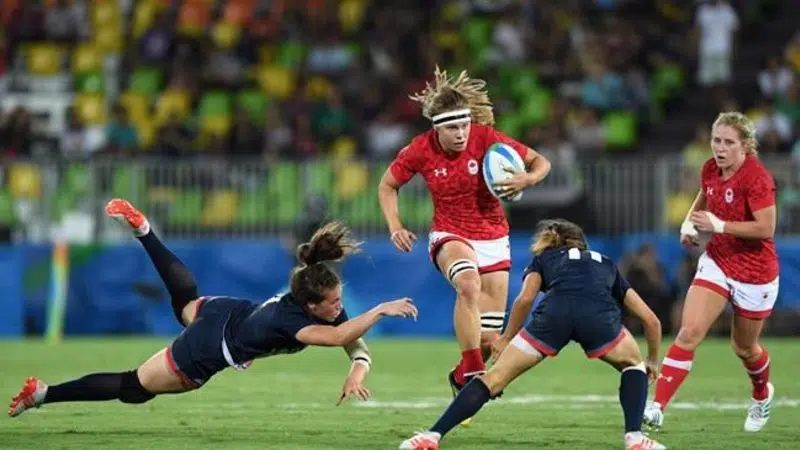
After long injury absence, Karen Paquin happy to be back with Canada sevens team
Karen Paquin helped Canada hoist a trophy in Japan last month in her return from a long-term knee injury. Now the 31-year-old from Quebec City looks to do the same on home soil.
Langford, B.C., plays host this weekend to the HSBC Canada Women’s Sevens, with the second-ranked Canadian women opening play Saturday against No. 4 Australia, No. 6 Ireland and unranked Brazil.
“The morale is super-high,” said Paquin. “We’re excited obviously to play at home and play in front of fans and our family and friends but at the same time we’re pretty focused on what we have to do and the task at hand.”


